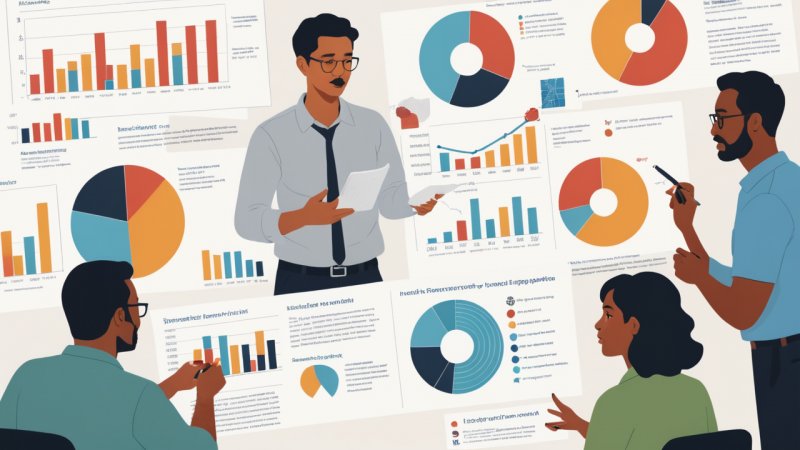Social sciences play a pivotal role in shaping public policy by providing insights into human behavior, societal trends, and the complexities of governance. Through disciplines such as sociology, psychology, economics, and political science, researchers examine the factors that influence policy decisions, the impact of policies on communities, and the mechanisms through which public opinion is formed and transformed. This article explores the intricate relationship between social sciences and public policy, highlighting key theories, methodologies, and case studies that illustrate their influence on policy-making processes.
The Role of Social Sciences in Understanding Society
At the core of social sciences is the study of human behavior and societal structures. By employing various research methodologies, social scientists analyze data to identify patterns, correlations, and causal relationships that inform public policy. The understanding garnered from social sciences enables policymakers to craft laws and regulations that are more aligned with the needs and preferences of the population. For instance, sociological studies on poverty and inequality can lead to the development of targeted welfare programs aimed at alleviating social disparities.
Key Theories in Social Sciences and Their Policy Implications
Numerous theories within social sciences provide frameworks for understanding societal dynamics and their implications for public policy:
- Behavioral Economics: This theory integrates psychological insights into economic decision-making, challenging the traditional view of rational actors. It highlights how cognitive biases and social influences can affect financial behaviors, leading to policies that encourage better decision-making in areas like health and finance.
- Social Constructivism: This theory posits that social phenomena are constructed through language and communication. Understanding how issues like race, gender, and class are socially constructed can influence policies aimed at promoting equality and social justice.
- Systems Theory: This framework views society as a complex system of interrelated components. It provides insights into how changes in one area (like education) can impact other areas (like the economy), guiding holistic policy approaches.
Research Methodologies in Social Sciences
Social scientists utilize a variety of research methodologies to gather and analyze data:
- Qualitative Methods: These methods, including interviews and focus groups, provide deep insights into individual experiences and perspectives. They are particularly useful for understanding contextual factors that influence public opinion and policy preferences.
- Quantitative Methods: Surveys and statistical analysis allow for the examination of trends across larger populations. Quantitative research can identify correlations and causal relationships, providing empirical evidence to support policy decisions.
- Mixed Methods: Combining qualitative and quantitative approaches offers a comprehensive understanding of complex social issues. This methodology can enhance the validity of research findings and their applicability to real-world policy challenges.
Case Studies of Social Science Influence on Public Policy
Several case studies exemplify how social sciences have shaped public policy:
- The War on Poverty: Initiated in the 1960s, this program was informed by sociological research on poverty and its roots. Studies highlighting the needs of low-income families influenced the creation of policies like food assistance programs and community development initiatives.
- Gun Control Legislation: Research in criminology and psychology has shaped discussions around gun control. Studies examining the relationship between firearm access and crime rates have led to policy proposals aimed at reducing gun violence through regulation and education.
- Health Policy Reform: The Affordable Care Act (ACA) in the United States was influenced by social science research on health disparities and access to care. Findings on the social determinants of health guided the creation of policies aimed at expanding coverage and addressing inequality in healthcare.
The Importance of Public Engagement in Policy Development
Public engagement is critical in ensuring that policies reflect the needs and values of the community. Social scientists advocate for participatory approaches that involve citizens in the policy-making process. This can include:
- Public Consultations: Engaging citizens through forums, town halls, and surveys allows policymakers to gather diverse perspectives and incorporate them into policy decisions.
- Deliberative Polling: This method involves providing citizens with information on an issue and facilitating discussions, enabling informed feedback that can shape policy outcomes.
- Collaborative Policy-Making: Involving stakeholders from various sectors, including academia, government, and civil society, can lead to more effective and inclusive policies.
Challenges and Limitations of Social Sciences in Policy-Making
Despite their contributions, social sciences face several challenges in influencing public policy:
- Complexity of Social Issues: Social problems are often multifaceted and resistant to simple solutions. Policymakers may struggle to translate social science findings into actionable policies.
- Political Influences: Policy decisions are frequently swayed by political agendas and lobbying, which may overshadow evidence-based recommendations from social scientists.
- Public Misunderstanding: Misinterpretations of social science research can lead to skepticism or resistance to proposed policies, particularly when they challenge deeply held beliefs.
Future Directions for Social Sciences and Public Policy
As societal challenges continue to evolve, the role of social sciences in public policy will be increasingly important. Future directions may include:
- Interdisciplinary Approaches: Collaboration across disciplines will enhance the understanding of complex issues and lead to more comprehensive policy solutions.
- Data-Driven Policymaking: The integration of big data and analytics will provide new insights into social behavior and trends, improving the efficacy of policy interventions.
- Global Perspectives: Understanding social issues through a global lens will help address transnational challenges such as climate change, migration, and health crises.
Conclusion
The influence of social sciences on public policy is profound and far-reaching. By providing valuable insights into human behavior and societal dynamics, social scientists help policymakers navigate the complexities of governance. While challenges remain, the continued integration of social science research into policy development will be essential in addressing the pressing issues faced by society today. As we look to the future, fostering collaboration between social scientists, policymakers, and the public will be vital in creating effective and inclusive policies that reflect the needs and aspirations of diverse communities.






